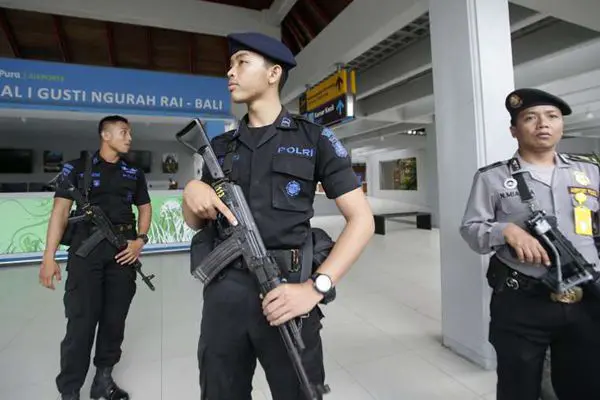(THE STRAITS TIMES) Indonesian police have arrested dozens of people from radical Islamic groups who were plotting attacks against a Jakarta airport and other targets, the national police chief said yesterday.
The 33 people were arrested by the police's anti-terror unit following last month's attacks in downtown Jakarta which killed four civilians and four assailants, said General Badrodin Haiti.
The gun and suicide bomb attacks, claimed by the Islamic State in Iraq and Syria (IS) militant group and centred on a Starbucks outlet, were the country's worst terror incident in seven years, ending a long lull in major terror.
The police have launched a crackdown across the country, saying they suspect that a broader extremist network helped to carry out the assault. Seventeen of those arrested were directly linked to the Jakarta attacks, while the remaining 16 were members of three other radical groups, Gen Badrodin said.
A group led by an extremist called Hendro Fernando had received 1.3 billion rupiah (S$135,000) from Jordan, Iraq and Turkey, he said, adding that it planned to launch attacks soon against Jakarta's main airport and the national police headquarters. Another group led by a person identified only as "Helmi" planned to use a car bomb to attack the Jakarta police complex in the city's main business district, Gen Badrodin said.
A third group, according to the police chief, planned stabbing attacks on traffic police.
"Terrorism attacks will still happen in the future because there are other groups linked to Bahrun Naim in Syria," he said.
Bahrun Naim is one of three high-profile Indonesians fighting for IS in Syria. The police said he played a central role in motivating groups in Indonesia to launch attacks in the country.
"(Naim) explained and gave motivation about launching a holy war. (He) explained how to make bombs and said he would send money to anyone who is ready to engage in terrorist acts," Gen Badrodin said.
Indonesia, the world's most populous Muslim-majority country, suffered several major bomb attacks by Islamic radicals between 2000 and 2009, including the 2002 Bali bombings that killed 202 people.
A subsequent crackdown weakened the most dangerous extremist networks.
The police now say the biggest threat comes from two main sources - Indonesians in Syria encouraging local groups to launch attacks, and Indonesians who return home from fighting in the Middle East.
There are currently 392 Indonesians fighting for IS in Syria.
 简体中文
简体中文

